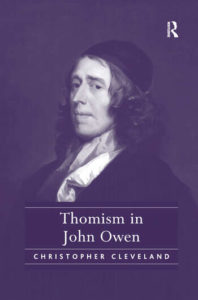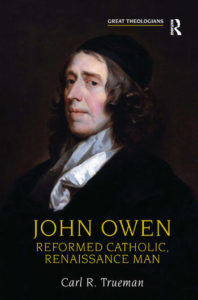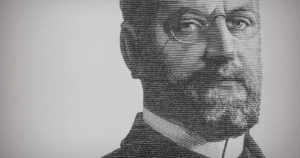
Author’s Corner
Each week on Credo we welcome you to join us in the Author’s Corner where we will meet a set of authors whose recent books deserve your attention and might even help you grow in your knowledge of theology, history, philosophy, and the scriptures. We hope the Author’s Corner can keep you up-to-date on the most important books published today and where you can find them.
On today’s Author’s Corner we present you with a selection of works highlighting the Reformed Catholicity of John Owen.
T homism in John Owen (Routledge, 2013) by Christopher Cleveland
homism in John Owen (Routledge, 2013) by Christopher Cleveland
Examining the influence of Thomas Aquinas and his followers upon the seventeenth century Puritan theologian John Owen, this book breaks new ground in exploring the impact of medieval thought upon Reformed scholasticism. Cleveland argues that Owen uses Thomistic ideas in two ways: first in an Augustinian fashion arguing against Pelagian and semi-Pelagian ideas of human independency; second in a Trinitarian fashion, with Thomistic ideas affecting the understanding of each person of the Trinity. The resulting theological formulation is strongly Western and Orthodox and provides a helpful model for theological formulation seeking to build upon a Western Christian foundation. The works of the Reformed theologian John Owen have long been admired for their depth and theological sophistication. In this book Cleveland fills a significant gap in Owen studies by pursuing a deeper understanding of the role that Thomas Aquinas and the school of thought known as Thomism played in Owen’s theology, from his works on providence and salvation by the Holy Spirit to his Christological work.
J ohn Owen: Reformed Catholic, Renaissance Man (Routledge, 2007) by Carl R. Trueman
ohn Owen: Reformed Catholic, Renaissance Man (Routledge, 2007) by Carl R. Trueman
John Owen is considered one of the sharpest theological minds of the seventeenth century and a significant theologian in his own right, particularly in terms of his contributions to pneumatology, christology, and ecclesiology. Carl Trueman presents a major study of the key elements of John Owen’s writings and his theology. Presenting his theology in its historical context, Trueman explores the significance of Owen’s work in ongoing debates on seventeenth century theology, and examines the contexts within which Owen’s theology was formulated and the shape of his mind in relation to the intellectual culture of his day – particularly in contemporary philosophy, literature and theology. Examining Owen’s theology from pneumatological, political and eschatological perspectives, Trueman highlights the trinitarian structure of his theology and how his theological work informed his understanding of practical Christianity. With the current resurgence of interest in seventeenth century Reformed theology amongst intellectual historians, and the burgeoning research in systematic theology, this book presents an invaluable study of a leading mind in the Reformation and the historical underpinnings for new systematic theology.
A n Introduction to John Owen: A Christian Vision for Every Stage of Life (Crossway, 2020) by Crawford Gribben
n Introduction to John Owen: A Christian Vision for Every Stage of Life (Crossway, 2020) by Crawford Gribben
More than three centuries after his death, Puritan theologian John Owen continues to have an impact on readers. In his eight million published words, he addressed a wide range of topics, from theological and biblical commentary to social and political issues. In this survey of Owen’s life and work, Crawford Gribben captures the vision of the Christian life that Owen himself lived out—and hoped his readers would live out as well.

